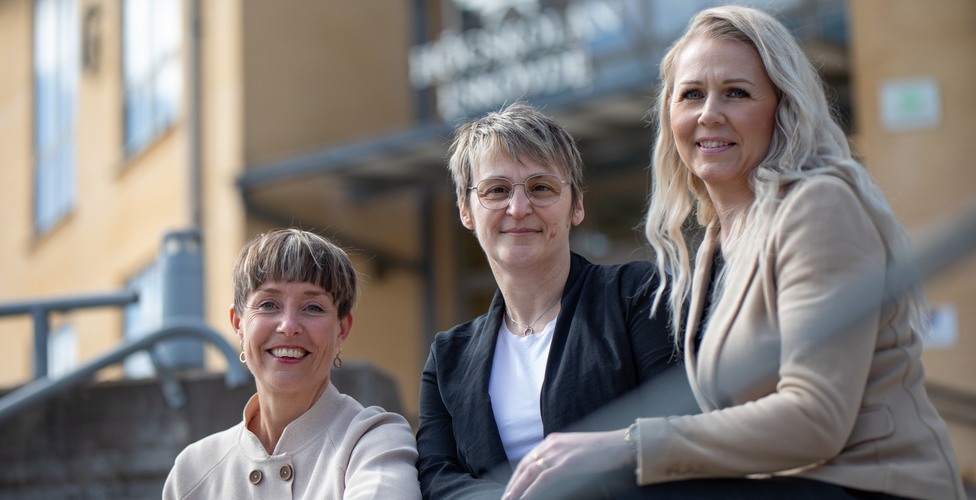Antibiotic resistance and invasive group A streptococci are pushing up the number of sepsis cases globally. As bacteria grow resistant to antibiotics, it is becoming increasingly difficult to find effective drugs to fight the infections that cause sepsis. This can lead to more severe sepsis cases and increased mortality. Researchers at the University of Skövde have now identified new combinations of biomarkers that can provide earlier diagnosis of this life-threatening condition.
 Anna-Karin Pernestig, Sanja Jurcevic and Diana Tilevik are all researchers at the University of Skövde’s School of Bioscience. Since 2011, they have been working with Tove Helldin, a researcher at the School of Informatics, to diagnose sepsis – a life-threatening condition that occurs in the body in response to an infection – earlier. More than 50,000 people suffer from sepsis every year in Sweden, and around 20% of them die.
Anna-Karin Pernestig, Sanja Jurcevic and Diana Tilevik are all researchers at the University of Skövde’s School of Bioscience. Since 2011, they have been working with Tove Helldin, a researcher at the School of Informatics, to diagnose sepsis – a life-threatening condition that occurs in the body in response to an infection – earlier. More than 50,000 people suffer from sepsis every year in Sweden, and around 20% of them die.
“We have identified new combinations of biomarkers that show very promising diagnostic performance,” says Diana. “The next step will be to validate these biomarkers through further analysis, but this requires access to new biobank samples and additional research funding.”
The researchers’ main focus is on analysing and compiling the generated data. They also plan to apply for more research funding in order to continue their research and carry out biomarker validation and further development of the SepsIT® digital decision support system.
Skövde is a strong node for sepsis diagnostics
Working in collaboration with stakeholders around Sweden and Europe, the four researchers have generated new knowledge and data over the years from various areas linked to sepsis diagnostics, such as the life science industry, the patient perspective, healthcare and clinical laboratories. They have also integrated insights from medical technology and standardisation, in order to gain a comprehensive understanding of the diagnostic challenges and opportunities within the field of sepsis.
“We are currently analysing and compiling the vast quantity of data we’ve generated,” adds Anna-Karin. “This includes potential new biological markers for sepsis. The data will support the ongoing development of our digital clinical decision support system for sepsis, SepsIT®, for which we have already developed a prototype.”
In 2023, they used Region Västra Götaland’s Innovation Platform to distribute a survey within the region to evaluate the layout and visualisation of SepsIT®. The results are now being reviewed by Tove, with the aim of improving the design of the system’s clinical decision support. The researchers have also sequenced more than 1,000 bacterial isolates gathered from sepsis patients to study microbial biodiversity. This data is also currently being analysed.
Why is there such a focus on sepsis in the media right now?
“The Sepsisfonden trust has received a lot of attention recently, as the invasive group A streptococcal infections leading to sepsis have become more visible in the media,” concludes Sanja. “There’s also growing interest in raising awareness of sepsis among the public. This includes sharing patients’ stories and the experiences of survivors and family members, to highlight the seriousness of the disease and the need for early, rapid treatment.”


